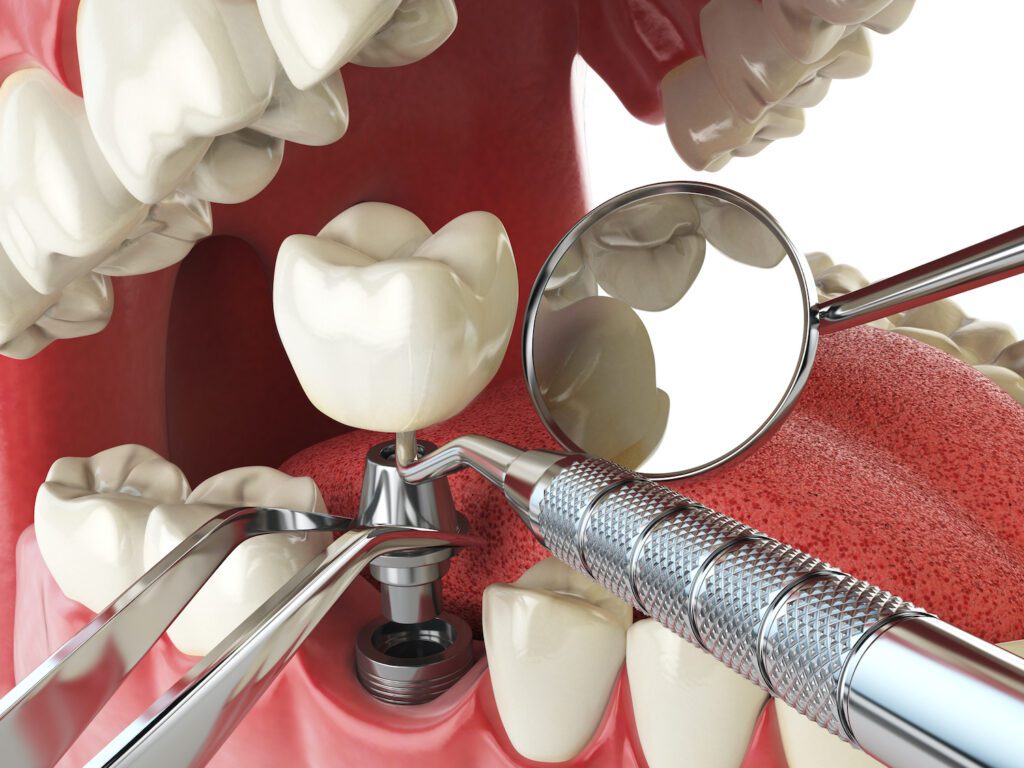Missing teeth can cause more than just cosmetic concerns. They can lead to shifting teeth, jaw pain, and even difficulty chewing or speaking. These issues can worsen over time without treatment. Dental implants in Frederick, MD offer a reliable solution for replacing your missing teeth, restoring both your smile and your oral health. However, not everyone is immediately ready for dental implants.
Dental implants are artificial tooth roots made of titanium, surgically placed into the jawbone. They provide a stable foundation for replacement teeth, such as crowns, bridges, or dentures. Because implants function like natural tooth roots, they help maintain jawbone density and prevent the bone loss that often occurs after losing a tooth.

Who Can Get Dental Implants?
While implants are one of the most effective ways to replace missing teeth, you need to meet certain conditions to ensure their success. Let’s take a closer look at the factors that make someone a good candidate for this treatment.
- Healthy Gums: Strong, healthy gums are essential for dental implants. Gum disease can weaken the surrounding tissue, making it harder for the implant to stay in place. If you have gum disease, your dentist may recommend periodontal therapy to restore gum health before proceeding with implants.
- Sufficient Jawbone Density: Implants rely on a sturdy jawbone to anchor them securely. If you’ve experienced bone loss because of missing teeth, you might not have enough bone to support an implant. However, bone grafting can be a viable option to rebuild bone density. This process involves adding bone material to the jaw, creating a solid foundation for the implant.
- Commitment to Oral Health: Good oral hygiene is key to ensuring your implant lasts. Regular brushing, flossing, and dental visits are essential to maintaining both the implant and the surrounding teeth.
- Non-Smoking: Smoking can interfere with the healing process after implant surgery and increase the risk of implant failure. Smokers considering implants should quit before surgery and avoid smoking during recovery.
What If Implants Aren’t an Option?
If dental implants aren’t right for you, there are other ways to replace missing teeth:
- Crown-Supported Bridges: These bridges fill gaps by using the teeth next to the missing one for support. Crowns are placed on the supporting teeth to strengthen them and improve stability.
- Partial Dentures: A removable option for replacing multiple teeth, partial dentures use a special adhesive to stay in place. While not as strong as implants or bridges, they can restore your ability to chew and improve your smile’s appearance.
What Happens During Your First Dental Implant Visit
Your first visit for dental implants involves a detailed look at your oral health and a full explanation of the implant process. The dentist will start by going over your medical history and talking with you about any concerns you may have. This is the time to ask questions and learn what to expect.
A key part of the visit includes imaging, such as X-rays or 3D scans. These pictures help the dentist see the condition of your jawbone and check if there’s enough bone to hold the implant securely. They also identify any potential problems that could affect the procedure. Along with the imaging, the dentist will examine your teeth and gums to ensure they’re healthy.
Based on these findings, you’ll get personalized advice about your treatment. If your gums need care or your jawbone isn’t strong enough, the dentist might recommend treatments like bone grafting before moving forward with the implants. This visit ensures that we tailor your plan to your needs and set the stage for successful implant placement.
Clearing Up Common Myths About Dental Implants
Many people feel nervous about dental implants because of myths they’ve heard. Let’s address some of these to help you feel more comfortable:
- Myth: Implants are very painful. Most patients say the discomfort during the procedure is similar to having a tooth pulled. Dentists use anesthesia to make sure you feel little to no pain during the process.
- Myth: Implants are hard to care for. In truth, implants are easy to maintain. Treat them like your natural teeth with daily brushing, flossing, and regular dental check-ups.
- Myth: Implants are only for older adults. This is not true. Anyone with healthy gums and enough bone can be a good candidate for implants, regardless of age. However, we do not recommend them for children under 18.
Understanding the facts about dental implants can make the decision easier and less stressful. By learning the truth, you can confidently take the steps needed to restore your smile and improve your oral health.
Ready to Restore Your Smile?
If you’re missing teeth, the team at Frederick Center for Dentistry is here to help. Call us at 301-264-5680 to schedule a consultation. During your visit, we’ll examine your teeth, discuss your goals, and recommend the best treatment options, whether it’s implants or another solution. Together, we’ll find a way to restore your smile and confidence.
